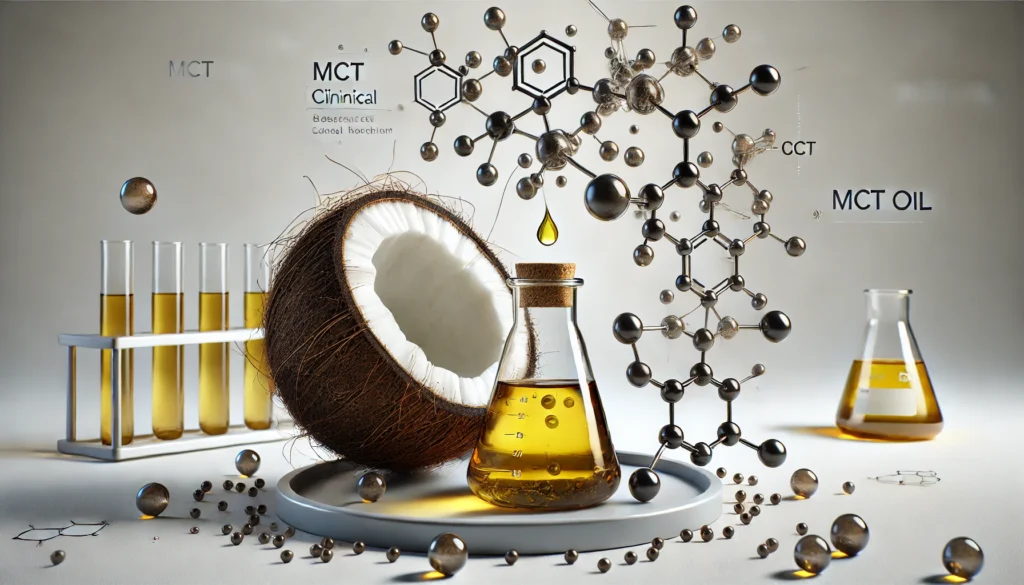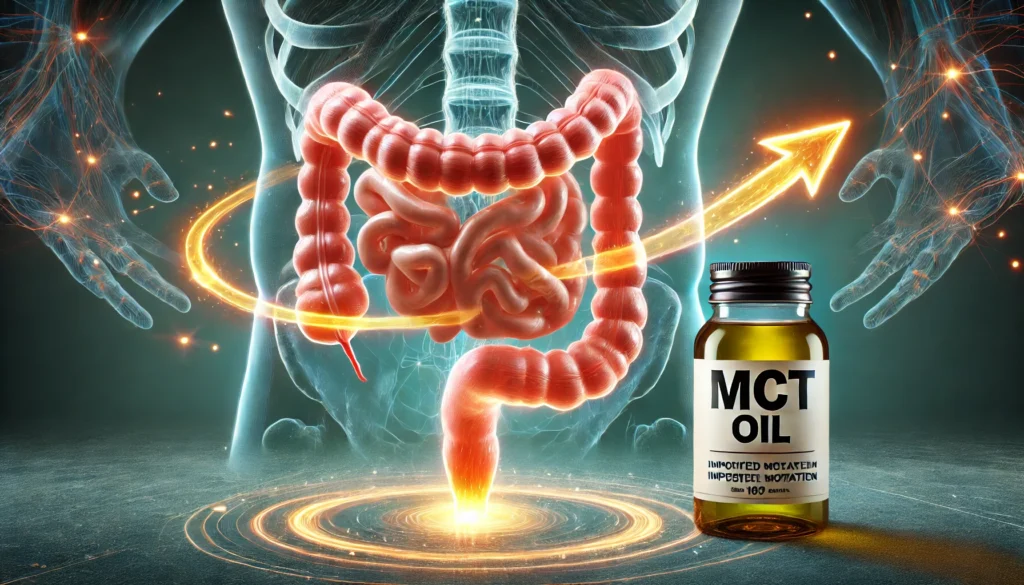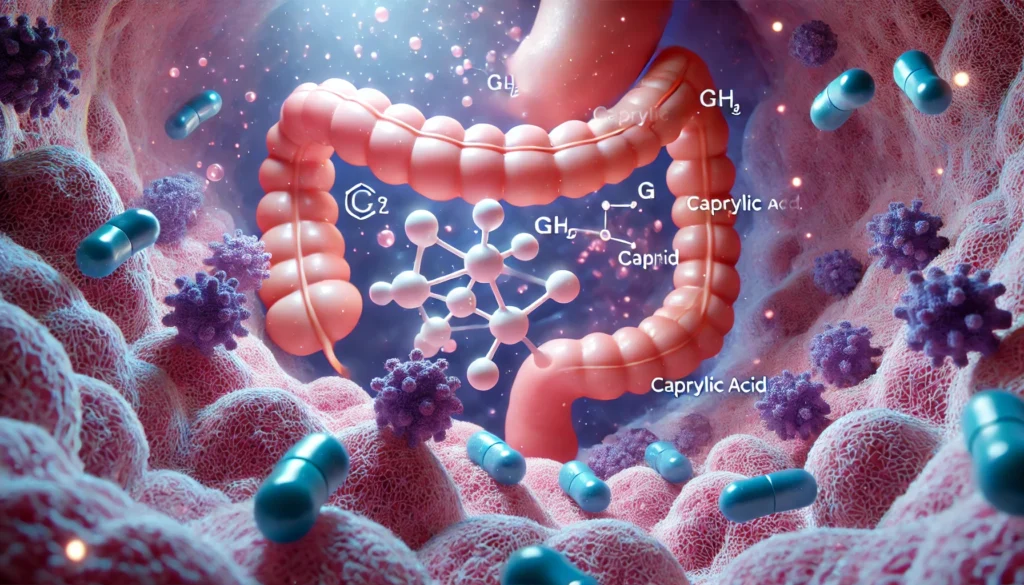Introduction
Constipation, though often dismissed as a minor inconvenience, can deeply affect a person’s quality of life. From feelings of physical discomfort and bloating to the frustration of irregular bowel habits, this common digestive issue drives countless individuals to seek relief through both conventional and alternative remedies. As the health and wellness space increasingly embraces functional fats and clean sources of energy, MCT oil has emerged as more than just a ketogenic diet trend. Touted for its rapid absorption and brain-boosting potential, this unique oil is also gaining attention for its effects on digestive function, particularly in people struggling with sluggish bowels.
You may also like: MCT Oil for Dementia and Brain Health: Exploring Its Role in Memory, Function, and Alzheimer’s Support
At the heart of the conversation are several key questions: Is MCT oil good for constipation? Does MCT oil make you poop? Can MCT oil support a healthier gut environment, or might it aggravate underlying issues such as yeast overgrowth? These concerns reflect a growing demand for transparent, research-backed insights into how seemingly benign supplements like MCT oil influence gut health.
In this article, we explore the science behind MCT oil’s digestion-enhancing effects, how it interacts with gastrointestinal systems prone to constipation, and what it may offer to individuals managing gut dysbiosis, including yeast-related conditions. We’ll dive deep into the physiology of MCT metabolism, uncover its potential as a supportive remedy for constipation, and discuss safe usage, contraindications, and practical recommendations rooted in clinical and nutritional science.

What Is MCT Oil and Why Does It Matter?
Medium-chain triglycerides (MCTs) are a unique class of saturated fats characterized by their shorter carbon chain length, typically ranging from 6 to 12 carbons. Unlike long-chain triglycerides (LCTs), which require more complex digestive processes including bile emulsification and lymphatic transport, MCTs are absorbed rapidly through the portal vein and metabolized by the liver into ketone bodies. This distinctive metabolic route makes MCTs a fast-acting fuel source, especially popular among athletes, biohackers, and followers of ketogenic diets.
Commercial MCT oil supplements generally focus on the two most efficiently absorbed forms: caprylic acid (C8) and capric acid (C10). These compounds are derived primarily from coconut oil and palm kernel oil, although the former is more frequently favored due to environmental and ethical considerations. The primary appeal of MCT oil lies in its ability to provide immediate energy without requiring carbohydrate intake, support cognitive clarity, and enhance satiety. However, the digestive effects of MCT oil are equally compelling—and for some, transformative.
One of the most frequently reported side effects of MCT oil supplementation is increased bowel movement frequency. While some see this as a nuisance or unintended consequence, others are now asking a different question: Can this side effect be beneficial for people dealing with constipation?

Does MCT Oil Make You Poop? Understanding Its Digestive Response
Anecdotal evidence and clinical observations consistently support the notion that MCT oil can induce more frequent bowel movements. For many users, especially those new to the supplement or consuming it in larger quantities, the urge to use the bathroom follows soon after ingestion. This is not purely coincidental; it’s a direct result of how MCT oil interacts with the digestive system.
Unlike most dietary fats, MCTs do not rely on bile for emulsification, and they bypass the lymphatic system entirely. Instead, they are absorbed directly into the bloodstream through the portal vein and sent to the liver. This process is highly efficient, but it also means that any excess MCTs not immediately metabolized can remain in the gut, drawing water into the colon. This osmotic effect can soften stools and promote peristalsis, the rhythmic muscular contractions that propel waste through the intestines.
Additionally, MCTs stimulate the release of gut hormones such as cholecystokinin (CCK) and peptide YY, which can enhance gastrointestinal motility. These hormones not only assist in digestion but also act on the enteric nervous system, helping to regulate the pace of bowel movements. Consequently, many people find that MCT oil does make you poop, especially when consumed on an empty stomach or in amounts that exceed individual tolerance.
While this response might seem inconvenient at first glance, for those who struggle with chronic or occasional constipation, it presents a potentially useful natural intervention. The key lies in using it wisely.
Is MCT Oil Good for Constipation? Examining the Evidence
Scientific literature on MCT oil specifically targeting constipation is still emerging, yet there are numerous pathways through which it shows promise. Clinical nutritionists and functional medicine practitioners have long recognized that MCTs support gastrointestinal health not only through mechanical means (softening stool and stimulating motility) but also by enhancing nutrient absorption and reducing microbial imbalances that contribute to constipation.
Constipation often stems from a combination of factors: low fiber intake, insufficient hydration, sedentary behavior, gut dysbiosis, and impaired bile production. In many of these cases, MCT oil can offer support. Its ability to act as a mild osmotic agent helps draw water into the intestinal lumen, which is essential for forming soft, passable stools. Additionally, for people on low-fat diets or those with suboptimal fat digestion, MCTs offer an easily metabolized lipid source that doesn’t place excessive strain on the gallbladder or pancreas.
Clinical observations suggest that MCT oil is good for constipation when used appropriately. In a study published in Clinical Nutrition, researchers found that MCTs improved nutrient absorption and supported intestinal function in patients with digestive disorders. Although constipation was not the primary endpoint, the findings align with the broader theory that improving fat metabolism and gut motility can contribute to regularity.
However, individual variability matters. Not everyone will respond to MCT oil the same way. For some, it may provide immediate relief. For others, particularly those with sensitive digestive systems or underlying disorders, MCT oil may cause discomfort if not introduced gradually. The best outcomes appear when MCT oil is used in conjunction with a fiber-rich, hydrating, and gut-supportive diet.

MCT Oil and Yeast: The Antimicrobial Angle
Another emerging area of interest is the relationship between MCT oil and yeast, particularly in the context of gut health. Yeast overgrowth, especially of Candida albicans, is a common issue among individuals with dysbiosis, antibiotic overuse, or diets high in refined carbohydrates. Symptoms may include bloating, fatigue, sugar cravings, brain fog, and even skin issues.
Caprylic acid, one of the dominant MCTs in many oil formulations, has demonstrated antifungal activity against Candida species. In vitro studies have shown that caprylic acid can disrupt fungal cell membranes and inhibit their replication, making MCT oil a potential ally in anti-yeast protocols. This effect is particularly useful for individuals undergoing gut flora rebalancing through dietary and supplemental means.
So, what does this mean in practical terms? For someone experiencing constipation associated with yeast overgrowth, MCT oil may serve a dual purpose. It can stimulate bowel movements while also contributing to the reduction of pathogenic yeast colonies in the gastrointestinal tract. That said, this benefit is not without risks. A phenomenon known as Herxheimer reaction, or “die-off,” can occur when microbial toxins are released faster than the body can eliminate them. Symptoms may temporarily worsen before improving.
For those exploring MCT oil yeast interactions, it’s essential to approach supplementation slowly, monitor for reactions, and pair the oil with detox-supportive strategies such as hydration, antioxidants, and probiotics.

Safe Use Guidelines for Digestive Health
For optimal results, MCT oil should be introduced thoughtfully. New users are encouraged to start with a small dose—such as ½ teaspoon per day—and increase gradually based on tolerance. Rapid introduction of large quantities may result in nausea, cramping, or urgent bowel movements, which can be discouraging and counterproductive.
Taking MCT oil with food, rather than on an empty stomach, often leads to better gastrointestinal tolerance. Incorporating it into smoothies, salad dressings, or blended beverages such as coffee (“keto coffee”) can provide a gentler delivery method. Adequate hydration is also crucial, as water helps regulate stool formation and supports detox pathways that may become more active with improved elimination.
It’s also important to consider the broader context of gut health. MCT oil is not a replacement for fiber, probiotic diversity, or anti-inflammatory foods. Instead, it should be seen as one tool within a comprehensive digestive wellness strategy. Combining MCT oil with prebiotic fibers, fermented foods, and mindful eating habits will yield more sustainable benefits.

Who Should Avoid MCT Oil or Use With Caution
Although many individuals benefit from MCT oil’s digestive properties, some health conditions may call for a more cautious approach. People who have had their gallbladder removed often experience reduced bile secretion, which may impair fat digestion. Even though MCTs are easier to absorb than long-chain fats, individuals in this group can still experience bloating or discomfort without medical supervision.
Similarly, those with fat malabsorption syndromes—such as celiac disease, Crohn’s disease, or pancreatic insufficiency—should consult a healthcare provider before starting MCT oil. While it is often recommended for these populations, close monitoring is required to avoid nutrient imbalances or flare-ups of digestive symptoms.
People with irritable bowel syndrome, especially the diarrhea-predominant subtype (IBS-D), may find that MCT oil exacerbates urgency and abdominal cramping. Since MCTs stimulate motility, they may be too harsh for guts already struggling with regulation. Additionally, individuals with liver conditions should be careful, as MCTs are metabolized directly by the liver and could place extra burden on hepatic function.
In these cases, other natural remedies—like magnesium citrate for gentle relief, psyllium husk for fiber support, or probiotic supplementation—may provide more balanced and sustainable outcomes. As with any supplement, personalization and professional oversight are key to safe and effective use.
Frequently Asked Questions
1. How quickly can MCT oil relieve constipation?
For many people, MCT oil can stimulate a bowel movement within a few hours of ingestion, particularly if taken on an empty stomach. However, the speed of relief depends on individual factors such as gut sensitivity, hydration levels, and dietary context. In chronic constipation cases, consistent use over several days may be needed to observe a significant shift in regularity. The gradual build-up of stool-softening and motility effects allows the digestive system to adjust and respond more naturally without harsh stimulation.
2. Is MCT oil better than fiber supplements for constipation?
MCT oil and fiber supplements work through different mechanisms. MCT oil primarily stimulates motility and draws water into the colon, making stool easier to pass. Fiber supplements, especially those with soluble components, bulk up the stool and feed beneficial gut bacteria. For long-term bowel health, fiber is essential. However, for people needing quick support or those with fiber intolerance, MCT oil may serve as a gentle alternative or complement to fiber. Combining both may offer the best results depending on tolerance and digestive goals.
3. Can MCT oil help people with IBS-C?
Some individuals with IBS-C (constipation-predominant irritable bowel syndrome) report relief when using MCT oil due to its stimulating effects on gut motility. However, IBS is a complex condition that involves both gut-brain signaling and hypersensitivity. While MCT oil may alleviate sluggishness, it can also trigger bloating or discomfort if introduced too quickly. Individuals with IBS-C should work with a nutritionist or functional medicine practitioner to create a tailored plan that includes MCT oil, fiber, hydration, and stress management for comprehensive symptom control.
4. Can MCT oil be used during a yeast cleanse?
Yes, MCT oil—especially caprylic acid—can be a beneficial part of a yeast cleanse due to its antifungal properties. It helps disrupt yeast cell walls and can reduce overgrowth in the gut. That said, introducing MCT oil too quickly can lead to detox symptoms such as fatigue, brain fog, or skin breakouts. To minimize the Herxheimer reaction, start with low doses, drink plenty of water, and support the liver with nutrients like milk thistle or N-acetylcysteine (NAC). A balanced yeast-cleansing protocol will combine MCT oil with dietary changes, antifungal herbs, and probiotic replenishment.
5. Can children or seniors use MCT oil for constipation?
Children and elderly individuals may benefit from MCT oil’s gentle motility support, but use must be approached with care. Pediatric use should be supervised by a healthcare provider, and the dosage should be extremely conservative. For seniors, MCT oil can be particularly helpful due to slower digestion and reduced fat absorption, but only if liver function is stable and there are no gallbladder issues. In both age groups, personalized guidance is critical to avoid side effects or nutrient interactions.
6. What is the safest way to incorporate MCT oil into a daily routine?
The safest approach involves starting with a small dose, such as ½ teaspoon, and increasing only as tolerated. It’s best to take MCT oil with food to reduce gastrointestinal side effects. Blending it into coffee, soup, or smoothies allows for even distribution and better digestion. Staying well-hydrated and maintaining a balanced diet with sufficient fiber will enhance its effects. Regular monitoring of how your body responds can help fine-tune your intake for optimal digestive support without discomfort.
7. Will MCT oil cause dependency for bowel movements?
While MCT oil can support regular bowel movements, it should not become a crutch. Over-reliance on any one substance—even a natural one—may interfere with the body’s intrinsic motility patterns. It’s important to rotate strategies and address foundational issues like hydration, fiber intake, gut flora, and stress. Using MCT oil occasionally or as part of a larger plan allows the digestive system to build resilience and function independently over time.
8. Can MCT oil interfere with medications or nutrient absorption?
MCT oil is generally safe, but it may influence how the body absorbs fat-soluble vitamins (A, D, E, and K) and certain medications. People on lipid-lowering drugs, liver medications, or those taking oral fat-soluble supplements should consult a doctor before using MCT oil daily. Additionally, because it increases intestinal transit time in some individuals, it may reduce the window for nutrient absorption if taken in large amounts. Spacing out MCT oil intake from medications and meals with critical nutrients is a wise precaution.
9. Is there a difference between coconut oil and MCT oil for constipation?
While both coconut oil and MCT oil contain medium-chain fats, MCT oil is more concentrated and refined, typically providing higher amounts of caprylic and capric acids. Coconut oil contains lauric acid, which behaves more like a long-chain fat and is slower to metabolize. For constipation relief, MCT oil is generally more effective due to its faster absorption and stronger effect on bowel motility. That said, coconut oil can still support digestive health and may be a milder option for sensitive individuals.
10. How does MCT oil fit into a gut-healing protocol?
MCT oil can be a strategic component of a gut-healing plan when used alongside other supportive interventions. Its antimicrobial effects help reduce harmful yeast and bacteria, while its energy-yielding properties support cellular repair and brain function during detox phases. In combination with prebiotics, probiotics, anti-inflammatory foods, and gentle fiber, MCT oil adds momentum to healing by supporting motility and microbial balance. A holistic approach that includes MCT oil—but doesn’t rely on it exclusively—can accelerate gut recovery and long-term resilience.

Conclusion
MCT oil is more than a trendy health supplement—it’s a metabolically active fat with distinct benefits for digestion, energy, and microbial balance. For individuals struggling with constipation, especially those seeking natural or complementary approaches, MCT oil offers a unique mechanism to support motility and regularity. Whether the goal is to soften stools, stimulate digestive hormones, or rebalance gut flora impacted by yeast, this potent oil provides a versatile and research-backed option.
Understanding the answer to questions like does MCT oil make you poop, is MCT oil good for constipation, or how MCT oil yeast dynamics unfold can help consumers use this supplement safely and effectively. As always, personalization, caution, and context matter. With the right approach, MCT oil can become an empowering tool in your digestive health journey—one that brings both immediate relief and long-term gut wellness.
Was this article helpful? Don’t let it stop with you. Share it right now with someone who needs to see it—whether it’s a friend, a colleague, or your whole network. And if staying ahead on this topic matters to you, subscribe to this publication for the most up-to-date information. You’ll get the latest insights delivered straight to you—no searching, no missing out.
Further Reading:
MCT Polyphenols and Brain Health: Exploring the Synergy Between Polyphenols and MCT Oil
MCT Oil vs Fish Oil: Scientific Comparison for Brain, Heart, and Metabolism



